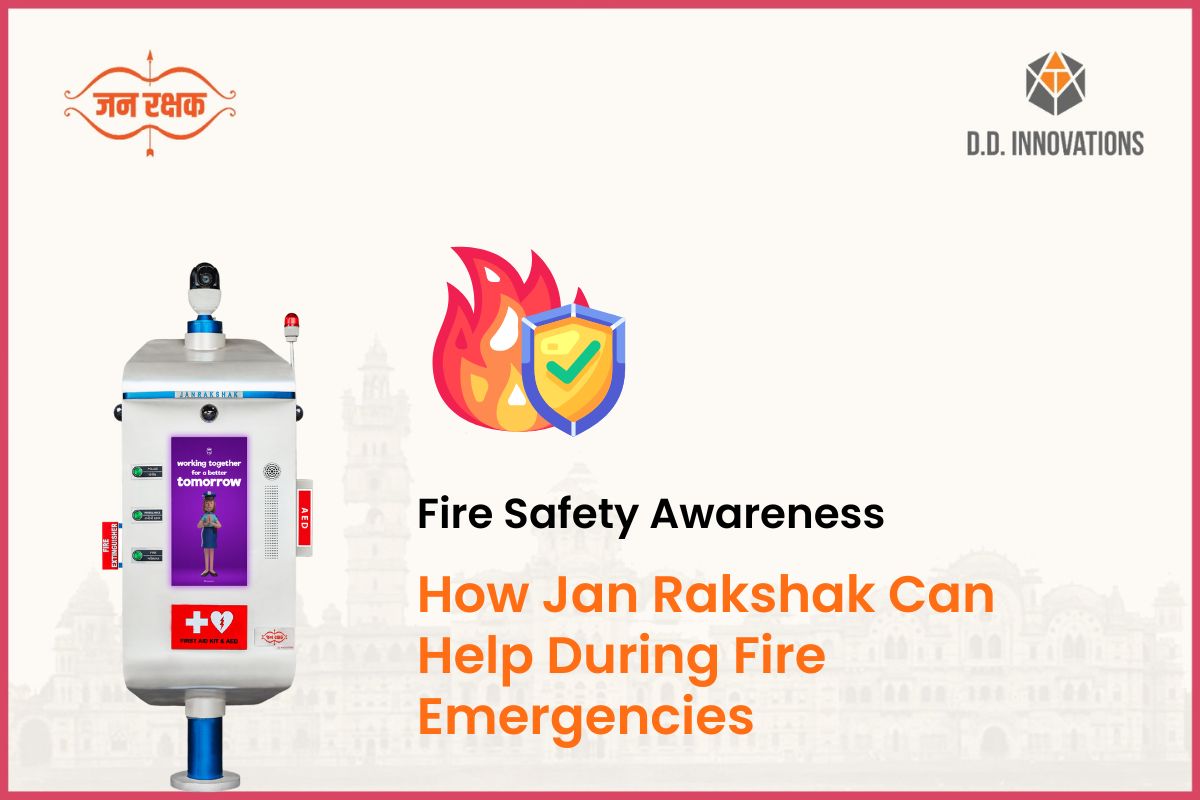Fire emergencies are unpredictable and can cause devastating damage to life and property. In a country like India, where public spaces are often crowded, ensuring fire safety awareness is crucial.
The right security system for public spaces in India can play a vital role in minimizing fire risks and improving emergency response times. Jan Rakshak, a smart public safety solution, is designed to help in such critical situations by providing immediate assistance.
The Importance of Fire Safety Awareness
Fire hazards can occur anywhere – in markets, malls, railway stations, parks, and workplaces. Often, the lack of awareness and preparedness leads to severe consequences. Some of the most common causes of fires include:
- Electrical short circuits
- Gas leaks
- Negligence with open flames
- Overloaded power outlets
- Lack of proper fire safety measures
Being aware of these risks and knowing how to respond in an emergency can save lives. This is where public safety technology like Jan Rakshak steps in.
How Jan Rakshak Enhances Fire Emergency Response
Jan Rakshak is an advanced security system for public spaces in India, designed to provide rapid assistance during fire emergencies. Here’s how it helps:
1. On-the-Spot Fire Extinguishers
Having immediate access to a fire extinguisher can help prevent small fires from escalating. Jan Rakshak kiosks are installed with fire extinguishers for quick use by the public until professional help arrives.
2. Direct Communication with Emergency Services
One of the standout features of Jan Rakshak is its emergency call button, which allows people to connect instantly with fire safety authorities. This eliminates delays in communication and ensures immediate action.
3. Guiding People to Safety
During a fire, panic often leads to chaos. Jan Rakshak kiosks can provide real-time audio guidance, directing people to the safest exit routes and gathering points.
4. 24/7 Surveillance and Monitoring
With advanced public safety technology, Jan Rakshak includes CCTV surveillance, which helps authorities monitor public areas for fire hazards, prevent mishaps, and analyze incidents for better future preparedness.
Fire Safety Tips Everyone Should Follow
Apart from having a security system for public spaces in India, individuals should also follow fire safety precautions to stay protected:





Conclusion: Fire Safety Starts with Awareness and Action
Fire safety is a shared responsibility. While individuals must remain vigilant, smart emergency response systems like Jan Rakshak ensure quick and effective action during fire emergencies.
With features like real-time alerts, fire extinguisher, emergency communication, and surveillance, Jan Rakshak is a reliable solution for enhancing public safety.
Stay alert. Stay safe. Let’s work together to make public spaces more secure.
Want to know more about how Jan Rakshak improves fire safety? Reach out today!






